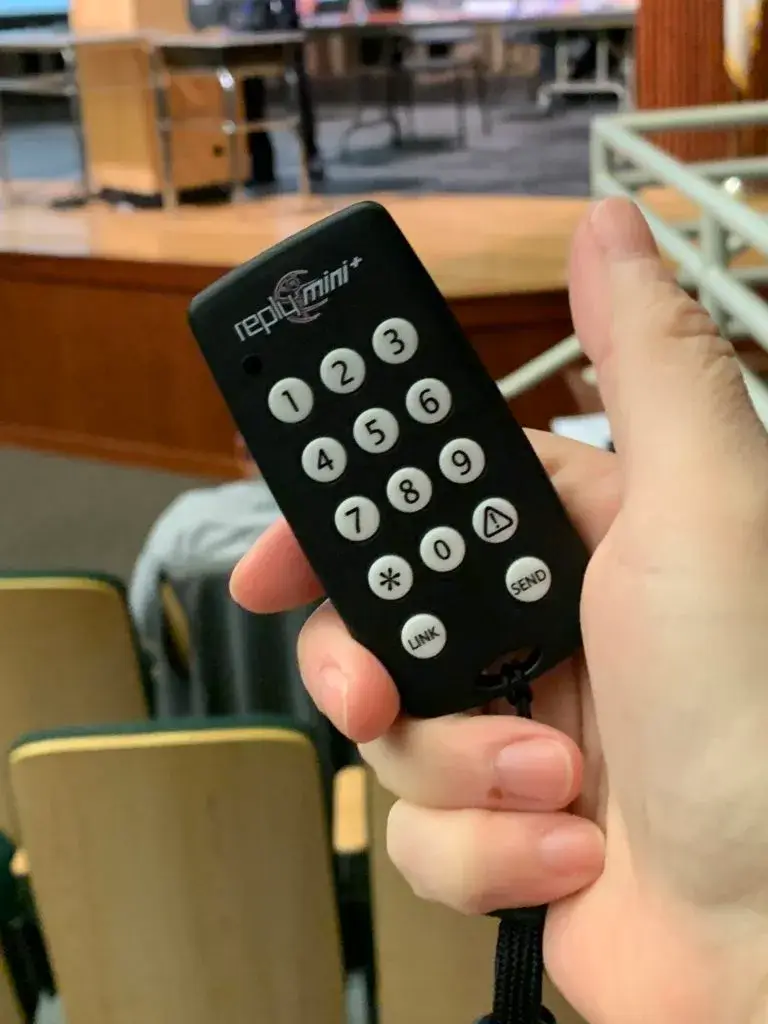A Q & A with proponents David Allen and David Carr
It’s far from a done deal, but two longtime Concord residents are proposing a significant change to the Town Meeting format to increase participation. Here’s a glimpse into how it might work:
Q: What was the thinking behind the move to remote participation and voting?
Allen: A set of Concordians cannot get to Town Meeting. Our task is simply to expand the experience of Town Meeting to those at home. They can join the deliberation while being seen and heard by all, and at the vote, via the technology we provide, they stand and are counted too.
Karr: The primary motivation for moving this now is the prospect of creating a Town Meeting study committee (see sidebar), which we very much support. At the same time, remote participation will not be possible until it is authorized by the legislature, so we figure we need to get the legislative effort moving now if there is to be any chance of remote participation being an option by the time the committee comes back with its recommendations.
Q: Are you dissatisfied with Town Meeting?
Allen: No, quite the opposite. If you are registered to vote and show up, you enjoy an Athenian-style democracy. We recognized that now the technology could make it possible to expand that to the home.
Karr: My first Concord Town Meeting was a transformative experience. Regular attendance drew me into greater civic participation in a way I had never imagined. I hope remote participation will encourage others to participate actively.
Q: What did the early planning look like?
Allen: The need was clear; the challenge was to design a system that would expand and preserve Concord’s Town Meeting community culture – our “stand and be counted” vote. The touchstone of democracy is that after differences are debated in the deliberation, we resolve the differences with the vote. In Concord, stand and be counted reaffirms we continue as that one unified community. Massachusetts law does not, at this point, authorize remote voting for open Town Meeting such as ours. Since the legislature is likely to grant that authority only as towns across the commonwealth increasingly want to go there, we have been in touch with potentially like-minded towns and tuned our effort accordingly.
Karr: We started to look into what could be done (to increase participation), which led to conversations with moderators and other officers of several towns, and it became clear that this was the idea to focus on.
Q: How feasible is the project in Concord?
Allen: Beyond feasible. Remote participation for our Town Meeting has been designed over years and is now ready to be implemented.
Karr: Any town could do this. The kind of interaction we have at Town Meeting already follows protocols: You queue up to speak, you speak for two minutes and then it’s someone else’s turn. It’s much simpler than the kind of interaction Zoom was designed for. The thing is to make it work the way Concord wants Town Meeting to work, not the way someone else thinks it should work.
Q: What kind of technology changes would it mean?
Allen: Principally, a large display in Town Meeting with a map of Concord, where voters at home will be represented individually, to match the presence of those who are physically in the room. For the deliberation of articles, lying behind that will be the coding to enable video and audio projection for those remote participants, as well as connecting them with video and audio.
Karr: Of course, we already have large displays in the meeting rooms, and this is how the people in the gym are able to watch the vote in the auditorium and vice versa. You don’t see the people in the other room all the time, but you see them when someone is speaking, and you see the votes. This would be similar. That’s where the idea of the “third room” comes from, because we already know how it works when people meet in two separate rooms.
Q: What kind of support do you have?
Allen: That is just the question we are asking the town now: “Is Concord ready for remote participation?” Initial responses have been enthusiastic. But we need a wide sampling across town, to decide whether to bring a citizen petition to Town Meeting in the spring.
Karr: As someone said to me after our presentation on December 2, it’s not a question of “if,” it’s a question of “when.”
Q: What are your next steps?
Allen: The first is to gauge whether Concord is ready for remote participation. If so, we collect signatures for a citizen petition article toward Town Meeting in April. If Town Meeting votes a Home Rule petition to go to the legislature, then preparations begin in earnest for a pilot trial run of remote participation, as designed.
Karr: The town itself must have an active role in deciding what remote participation should look like so that we end up with a solution that is right for Concord. That’s why the pilot trial is so important.
Allen: Timing will depend on legislative action. Wayland for the second year now has a Home Rule petition for remote participation before the Legislature, while 13 other towns are watching. A Concord Home Rule petition would strengthen prospects for legislative action.





